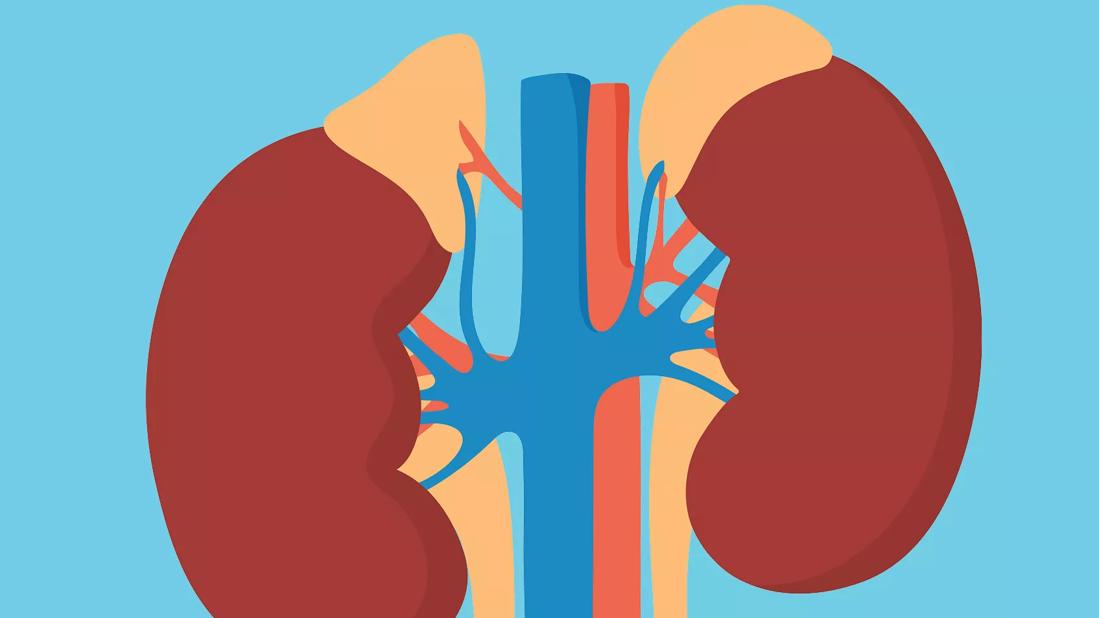An accurate diagnosis can lead to relief from your symptoms

Image content: This image is available to view online.
View image online (https://assets.clevelandclinic.org/transform/46d19608-91a5-4be0-9bee-a492aa9883a8/AdrenalGlandFatigue-1338374348-770x533-2_jpg)
A close up illustration of the adrenal glands
Excessive fatigue, sleeping problems and trouble concentrating — especially after having an infection or being overwhelmed by stress? Many patients with these complaints have been told that the cause is adrenal fatigue. And they struggle to get relief.
Advertisement
Cleveland Clinic is a non-profit academic medical center. Advertising on our site helps support our mission. We do not endorse non-Cleveland Clinic products or services. Policy
But the problem with the term “adrenal fatigue,” which is not an officially recognized diagnosis, is that it has been used to describe a group of symptoms when nothing else can be used to explain it.
Endocrinologist Shirisha Avadhanula, MD, discusses the truth about adrenal fatigue and how a proper diagnosis and multidisciplinary care can lead to symptom relief.
A: The adrenal glands have a big job. They’re responsible for producing, secreting and regulating specific hormones in your body, including cortisol. They work constantly and have a huge functional capacity — just like your heart or lungs.
The term “adrenal fatigue” is based on the assumption that your adrenal gland has the capacity to fatigue — but certain organs in your body are not so easily subverted. They don’t simply tire out.
A: Unfortunately, adrenal fatigue doesn’t truly explain what’s going on in your body, which can lead to misdiagnosis, mistreatment and unpleasant side effects. Even more concerning: A diagnosis of adrenal fatigue can potentially mask something else going on in your body — something that should be further explored with your care team.
Sometimes, patients who have been misdiagnosed with adrenal fatigue are prescribed prednisone (a type of steroid) or advised to purchase expensive adrenal supplements to replace the cortisol that is presumed to be missing. But patients experience no benefits from taking these medications — and in fact, taking prednisone can result in negative side effects and could ultimately even suppress your body’s own ability to produce cortisol.
Advertisement
Often, it turns out that patients misdiagnosed with adrenal fatigue actually have postural orthostatic tachycardia syndrome (POTS), a surprisingly common condition. Patients may also have various underlying illnesses, making a thorough workup with your primary care team a vital part of your care plan.
It’s very important that doctors spend enough time gathering your history details and performing tests before diagnosing the problem and beginning treatment. Sometimes, we can start to help a patient immediately by making modifications to their diet, prescribing an exercise regimen and/or recommending specific supplements.
A: Adrenal insufficiency is a state in which your adrenal glands don’t function properly and cannot secrete the vital hormones your body needs to function normally.
Adrenal insufficiency can be caused by Addison’s disease, a pituitary disorder or another disorder. Some symptoms of this life-threatening dysfunction include extreme exhaustion, lack of appetite (leading to weight loss), diarrhea, nausea, low blood pressure and low blood sugar.
A: If you’re just beginning your quest for answers or have already been diagnosed with adrenal fatigue, consult your family doctor for a referral to an endocrinologist. Because the symptoms of an adrenal issue may be nonspecific, it’s important to figure out if there’s an underlying issue causing your symptoms in order to help manage your health properly.
To assess adrenal function, your healthcare provider will conduct a one-hour ACTH stimulation test, which is safe and reliable. They will likely also look for thyroid issues and diabetes.
After checking for a variety of endocrine disorders using testing and symptom assessment, we start working with a multidisciplinary team of doctors to figure out the root cause of the patient’s problem.
A: After ruling out possible endocrine disorders, your endocrinologist can refer you to other specialists, including urologists, cardiologists, rheumatologists, allergists/immunologists and infectious disease physicians.
If you’re diagnosed with POTS or another disorder, these specialists will work together to manage your health and develop a targeted treatment plan — putting you on the path to symptom relief.
Advertisement

Sign up for our Health Essentials emails for expert guidance on nutrition, fitness, sleep, skin care and more.
Learn more about our editorial process.
Advertisement
Hoping to combat stress and fatigue? These trendy ’mocktails’ aren’t your best choice
The answer is yes — but there are things you can do to help boost your energy
Many factors, like dehydration, a cold or even your medication, can result in these common symptoms
It’s important to connect with a healthcare provider, get quality sleep and balance your activities with your energy levels
Keeping a sleep diary and seeing a sleep specialist can help you stay asleep and get the ZZZs you need
Eating turkey is only a small part of the reason you want to take a nap
Sleep disorders, diet and mental health can affect the quality of your sleep
Don’t let the fear of making the ‘wrong’ decision stop you from moving forward
Type 2 diabetes isn’t inevitable with these dietary changes
Applying a hot or cold compress can help with pain
Pump up your iron intake with foods like tuna, tofu and turkey